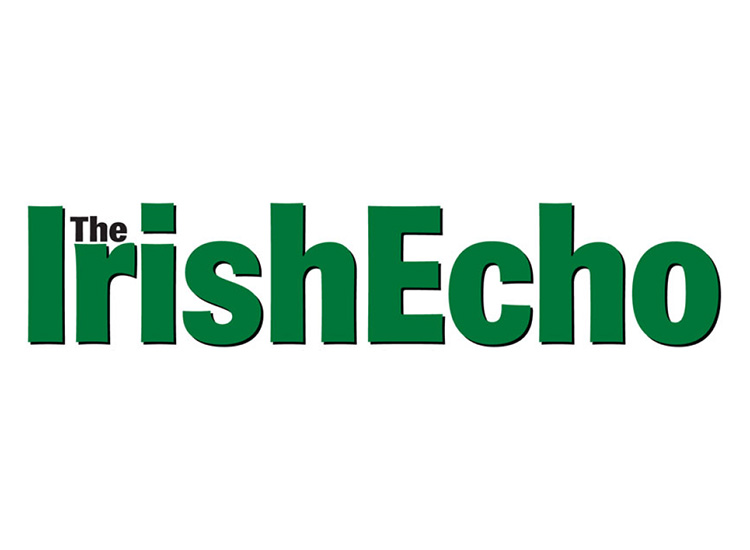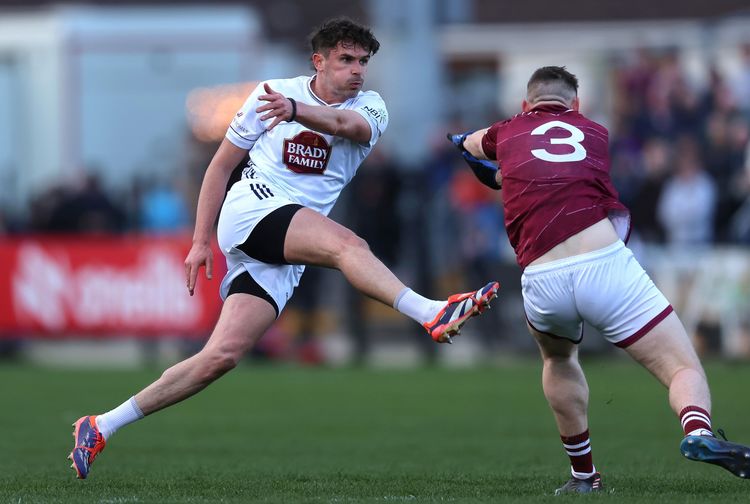U.S. Special Envoy Mick Mulvaney speaking during the recent Irish American Campfire
Mick Mulvaney is the seventh U.S. Special Envoy to the Northern Ireland peace process. He is the third Republican. There are two Democrats and two Independents among the seen. So the envoy post has been an ongoing bipartisan mission. Special Envoy Mulvaney spoke in an online interview for the recent Irish American Campfire and below are edited extracts from his responses to questions from Irish Echo Editor, Ray O'Hanlon
What in the special envoy's view is the importance of continued U.S. involvement in the search for peace, reconciliation and progress in Northern Ireland?
"It's a very nice way to put it about a mix of Republicans, Democrats and independents. I've talked to my colleagues, I've talked to several of my predecessors, politics, especially American politics, never even comes up.
"And I will talk just as freely to Richie Neal and Brendan Boyle on the Hill as I will to Peter King and David Joyce, and those are Democrat and Republican folks who are interested in that they follow Irish issues. So it is kind of nice.
"I realize that I'm moving in a non-partisan space in a hyper partisan time. But that background, I think, carries forward into what the job is supposed to be. I had a great conversation with (former envoy) Richard Haass right before I came on duty. And he expressed to me, I thought, one of the best summaries of what the job is, which is to maintain the role as an honest broker.
"So you've got two friends, two very good friends, they get along well, most of the time, sometimes they don't, when they don't, wouldn't it be nice for them to have a mutual friend that they can go to and talk and help them work through things. I know that sounds overly simplistic and I don't mean to oversimplify the issue.
"But by putting it in those terms, that is sort of what I think he (Haass) saw the job as. I see the job as how do you encourage and nurture that role as an honest broker to where you you can speak to both sides with some credibility, and they can speak to you with some understanding that their words are falling on fertile soil, and that you have not made up your mind one way or the other on any particular issue.
"I guess the world used to work like that a lot more than it does today, especially in domestic politics, but I tell you, I've been extraordinarily well received in this role the last three or four months, so I hope that we can continue to cultivate that."
How did his appointment as special envoy come about?
"This has not gotten a lot of press. The president and I have a very, very close relationship. And around the beginning of 2020, he and I had started to talk about what would happen next at the Chief of Staff office in the White House.
"Mark Meadows is a friend of mine. And the more he (the president) and I talked about it, the more we both knew that a time was coming when there be a change in the Chief of Staff office. And he had known for years about my interest in this position. So I was actually fortunate enough in February, before I was officially the envoy, to go over and spend a week.
"And I was in London for a couple days, and Dublin for a couple days, and in Belfast for a couple of days and had a chance, in an unofficial envoy position, to meet a lot of the players face to face. And I'm glad that I did.
"Because, as you say, it's nearly impossible to get there now. I've talked a good bit to Arlene and Michelle, and I'm very, very sensitive to what's happening right now in Northern Ireland and what it would look like to have an American come over and say, well, the rules don't apply to me. At some point, I may push the envelope a little bit because it's very difficult to do this type of diplomacy over over a zoom meeting, and I desperately want to come and sit down and talk to folks face to face and look them in the eye.
"But for right now, it's been long distance, but I've had a chance to talk to just about everybody. I do spend a good bit of time talking with (Northern Ireland Secretary of State) Brandon Lewis and his office. We have a good relationship. And I have spent a good bit of time on the phone with both Michelle and Arlene. And Elizabeth Trudeau, our Consul General in Belfast who has worked endlessly in arranging meetings with me and many of the cross community leaders. We've probably done thirty of these sorts of meetings.
"Really, it's mostly when folks are going to be comfortable in meeting me when I'm there. I can get there. That's that's not the issue. But when I'm there, if someone doesn't is not comfortable meeting face to face, then it sort of defeats the purpose. There's no reason to go to Belfast to have a zoom meeting with someone who's down the road. So the timing has to be right We're making the best of it."
What about Brexit?
"There's a bunch of different questions wrapped up in that because it's a bunch of different issues. UK EU, UK, U.S., Ireland, UK. We look at Northern Ireland from a policy standpoint, through the prism of the Good Friday, the Belfast Agreement, and through the non-existence of a hard border between North and South.
"And I think almost every time an issue comes up, Richie, Neil, Peter King, myself, would look at it and say, okay, does that have an impact on the border? So that's sort of the question we start with for everything, which is, will this preserve the Good Friday Agreement? Will it preserve the lack of physical border? Or will it do something to undermine those two things?
"And that's sort of our litmus test on just about everything, at least as as a starting point. I had a great conversation with the taoiseach a couple weeks back. I asked him if the Europeans shared the American aversion to a hard border. And he said, absolutely they do."
The U.S. continues to support the International Fund for Ireland, the latest contribution being signed into effect by President Trump and amounting to $2 million. Not a very big sum of money but big enuogh if widely used. What is the Special Envoy's position on the IFI?
"In the greater scheme of things you can secure for that $2 million a tremendous return on investment for American taxpayers. So the president supports it. I think it was a slight increase. And you're right, it (the IFI) does sort of wane and wax from time to time. But let's not allow money to be the problem here. No one's ever come to me and say, well, we spend way too much money there. This is not a money relationship. This is a family relationship. And we're interested in seeing economic development, growth, individual wealth creation in Northern Ireland, and the peace and stability that comes from it. Those are the conversations we have when it comes to things like the International Fund for Ireland. What is it doing to accomplish? It's not a bean counting exercise, like it would be with some other programs."
What are Special Envoy Mulvaney's view on power sharing between the five parties in Belfast?
"Let me see if I can be cautiously optimistic for a while. I look at how that coalition in the devolved government has handled Covid. You have to admit that Belfast has handled the crisis as good as anybody. And that maybe they're learning something, which is, number one, having a common enemy might be something you can focus your attention on, as opposed to being enemies with each other.
"Number two. You're in this global society with international supply chains and so forth. Maybe they're learning that there is an advantage to being small. And that this maybe provides a competitive advantage because they've been able to do things to deal with Covid because it's still a fairly tight knit community, things that you haven't been able to do, for example, in India, or China or South America. And face it, those are the competitors in a global marketplace for Northern Ireland. In the tech business, they (Northern Ireland) are competing with Bangalore. They're competing with Shanghai, they're competing with Buenos Aires.
"And one of the things they're beating them on right now is how do you handle a pandemic. And it fast forwards to if you set up business in Belfast you can be relatively sure that your supply chain will stay open, that you're not going to crash and burn like if you were based in Wuhan. So there are some advantages that I think they're discovering. Maybe they come out of this and say, let's look at how well we handled Covid and build on that, move to the next level of success."
The Special Envoy on his Irish family roots, which go back to County Mayo
"Unfortunately, we don't have the direct contacts that many families have. We lost track of my ancestors. My ancestor Michael Mulvaney came over without a middle name. And there were six gentlemen of that name who came in through Montreal, Canada, at that particular time on that particular ship that we know he was on. And we know they were all from Mayo. So there's a family relationship to a Michael Mulvaney from Mayo, but we don't know which one was ours."








